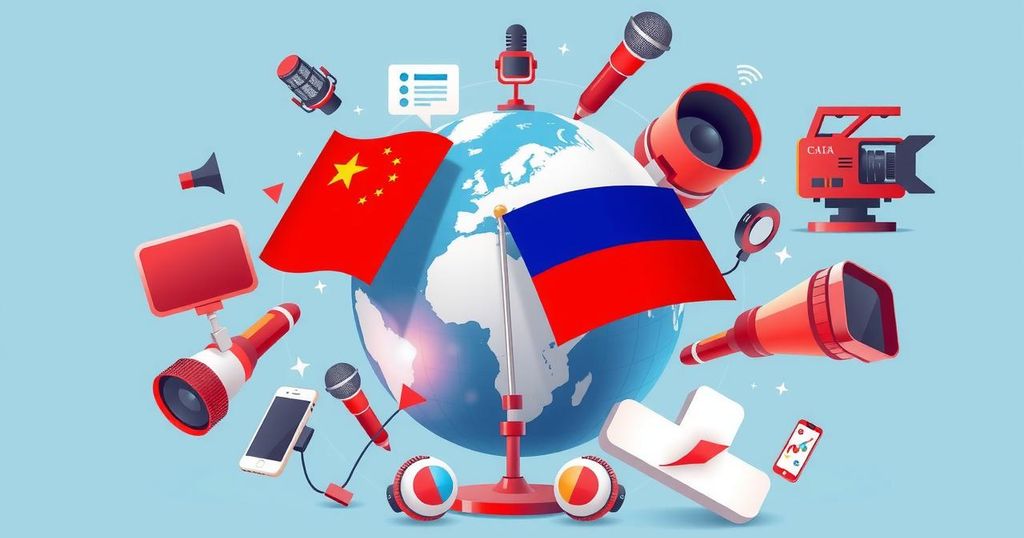President Trump has enacted substantial cuts to the U.S. Agency for Global Media, displacing numerous journalists and reducing U.S. presence in global media amidst concerns about foreign propaganda from adversarial nations like China and Russia. This shift may hamper diverse reporting and lead to the dominance of pro-government narratives, highlighting the critical role U.S. media has historically played in countering misinformation.
In a significant shift in the global media landscape, President Donald Trump has enacted an executive order to reduce the funding of the U.S. Agency for Global Media by nearly $1 billion. This decision has resulted in the displacement of hundreds of journalists, marking a substantial reduction in governmental media oversight at a time when adversarial nations are ramping up their propaganda efforts. Lisa Curtis, former National Security Council official, articulated concerns, stating that the cuts would “actually help our adversaries.”
Countries such as China and Russia are heavily investing in media that disseminate anti-American sentiments and disinformation. These nations are strategically enhancing their influence, with China providing essential equipment and resources to bolster media initiatives. Moreover, after being banned from Europe, Russian outlets have intensified their efforts in Africa, leveraging social media to undermine Western health initiatives. This strategy illustrates a calculated approach to expand influence in regions traditionally aligned with Western ideologies.
The BBC has also faced challenges, scaling back its services amid budget cuts and losing its Arabic radio frequency to Russian media. Researcher Sarah Cook emphasized that it is not straightforward for Chinese media to replace U.S. outlets like the Voice of America (VOA) due to the different media practices and methodologies. Nevertheless, a potential transition to Chinese funding could lead to a journalism landscape dominated by state-sponsored narratives, which tends to be pro-government.
Kari Lake, a prominent Trump supporter, criticized the U.S. Agency for Global Media as a financial burden to taxpayers, suggesting that its dismantling is a necessary shift in modern media consumption. Trump’s administration has often characterized government-funded media as outdated compared to the availability of private sources. However, U.S.-funded broadcasters have played a crucial role in providing diverse narratives, often reliant on exiles and unique sourcing. The existence of outlets like Radio Farda and Radio Free Asia has facilitated essential reporting for demographics facing severe restrictions under oppressive regimes.
Insider insights, such as those from Mareike Ohlberg of the German Marshall Fund, reveal that China’s media expansion was strategically timed, capitalizing on the challenges facing Western outlets. Ohlberg asserts, “They saw an opportunity – let’s offer our narrative,” underscoring the potential for increased Chinese influence in the global media arena following U.S. funding reductions. This situation affirms that the alteration in U.S. media funding could have far-reaching ramifications, facilitating the establishment of singular narratives with diminished alternative viewpoints.
In summary, President Trump’s recent action to significantly reduce funding for the U.S. Agency for Global Media could yield profound consequences for the international media landscape. This move may provide adversarial nations like China and Russia with an opportunity to expand their influence and narratives, thereby undermining the U.S.’s historic media outreach and counteracting disinformation efforts. The shifting dynamics reveal an urgent need to reassess the role and importance of independent media on a global scale, particularly in regions susceptible to authoritarian narratives.
Original Source: m.economictimes.com






